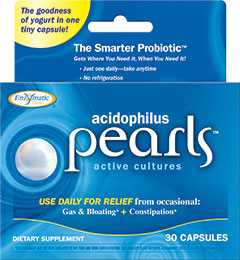 Monkey Business Images / Thinkstock
Monkey Business Images / Thinkstock

Ease your child's #autism symptoms with research-backed nutritional strategies. @deliciousliving
In the 1950s, autism was so rare that most people had never heard of it. Now one in every fifty American children has some form of autism, according to the Centers for Disease Control and Prevention.
Autistic symptoms vary but most often impact a child’s social communication skills—leaving him or her perpetually withdrawn, silent, or physically difficult to control.
Is the increase simply a matter of improved diagnostics? Not likely. Parents, teachers, and physicians would not have missed such a clear behavioral disorder. Doctors have theorized about various causes, but parental, fetal, and infant exposures to toxins (not just mercury) do seem related to risk.
One bright spot: Nutritional therapies often reduce symptoms in autistic children. “Some supplements can improve brain chemistry, and vitamin B6 in particular may possibly reduce seizures,” says Stephen Edelson, PhD, executive director of the Autism Research Institute (ARI) in San Diego. Here are some promising approaches.
Diet. A just-published study found a strong link between prenatal pesticide exposure and subsequent development of autism. So if you’re planning to have children, go organic to drastically reduce toxin intake and focus on healthy eating habits long before you or your spouse become pregnant. If you have a child with autism, a gluten- and casein-free diet often mitigates symptoms, according to an extensive parental survey in 2009 and a 2013 summary of more than 150 published studies. A candida-elimination (sugar-free) diet and the Feingold (additive-free) diet can also help, as does avoiding wheat, refined sugars and carbs, chocolate, and eggs.
Dose: To address general nutrient deficiencies, give your child a daily multivitamin—and take one yourself.
Detox. According to ARI, liver detox regimens and medically supervised chelation therapy (which removes mercury and lead from the body) can also dramatically lessen autism symptoms. Lipoic acid, N-acetylcysteine (NAC), and silymarin boost the liver’s ability to break down toxins.
Dose: For small children, try one or two of these: 100 mg lipoic acid, 100 mg NAC, or 100 mg silymarin daily. For teens, double or triple the dose.
B6, magnesium, DMG, zinc. Several studies by the late Bernard Rimland, PhD, who founded ARI, discovered that a combination of vitamin B6 and magnesium supplements led to significant improvements in autistic children’s behavior. More than 20 studies have since found these nutrients helpful. Edelson adds that dimethylglycine (DMG) and zinc might further reduce symptoms and improve learning. Take these supplements under the guidance of a nutritionally oriented doctor.
Dose: 250–1,000 mg B6, 200–400 mg magnesium citrate, 125–250 mg DMG, and 15 mg zinc gluconate daily.
Vitamin D. Low vitamin D levels during fetal development and infancy might predispose a child to autism, according to a growing body of research. Researchers at the Children’s Hospital Oakland Research Institute in California suggest that vitamin D supplements might prevent and lessen symptoms.
Dose: 400 IU daily for infants, 600 IU for toddlers, and up to 2,000 IU daily for teens.
Omega-3s. These nutrients, specifically docosahexaenoic acid (DHA) and eicosapentaenoic acid (EPA), are essential for brain development, and studies show that supplements improve children’s behavior and learning. In a new study, omega-3s led to significant neurological improvements in 8- to 12-year-old children.
Dose: About 300–400 mg DHA and 100–200 mg EPA daily. You can safely double the dose.
Probiotics. Studies have found that autistic children have a gut bacteria imbalance—and a more serious imbalance is related to more severe autism. Constipation or diarrhea plague up to 50 percent of children with autism.
Dose: Look for a supplement containing 1 billion to 5 billion CFU of lactobacillus and bifidobacteria.
Remember: it’s a good idea to talk to your healthcare provider before starting a new supplement.
Boosts for kids

Enzymatic Therapy Acidophilus Pearls. These tiny, round tablets contain a lactobacillus and bifidobacteria blend.

Natural Factors Vitamin B6 with Vitamin C. At 250 mg per capsule, this is the highest potency B6 supplement sold. Also contains 50 mg vitamin C.

Now Silymarin Milk Thistle Extract. Provides 150 mg of this well-known liver-detox antioxidant.

Ovega-3 Omega-3s. This vegetarian omega-3 provides 320 mg DHA and 130 mg EPA.
